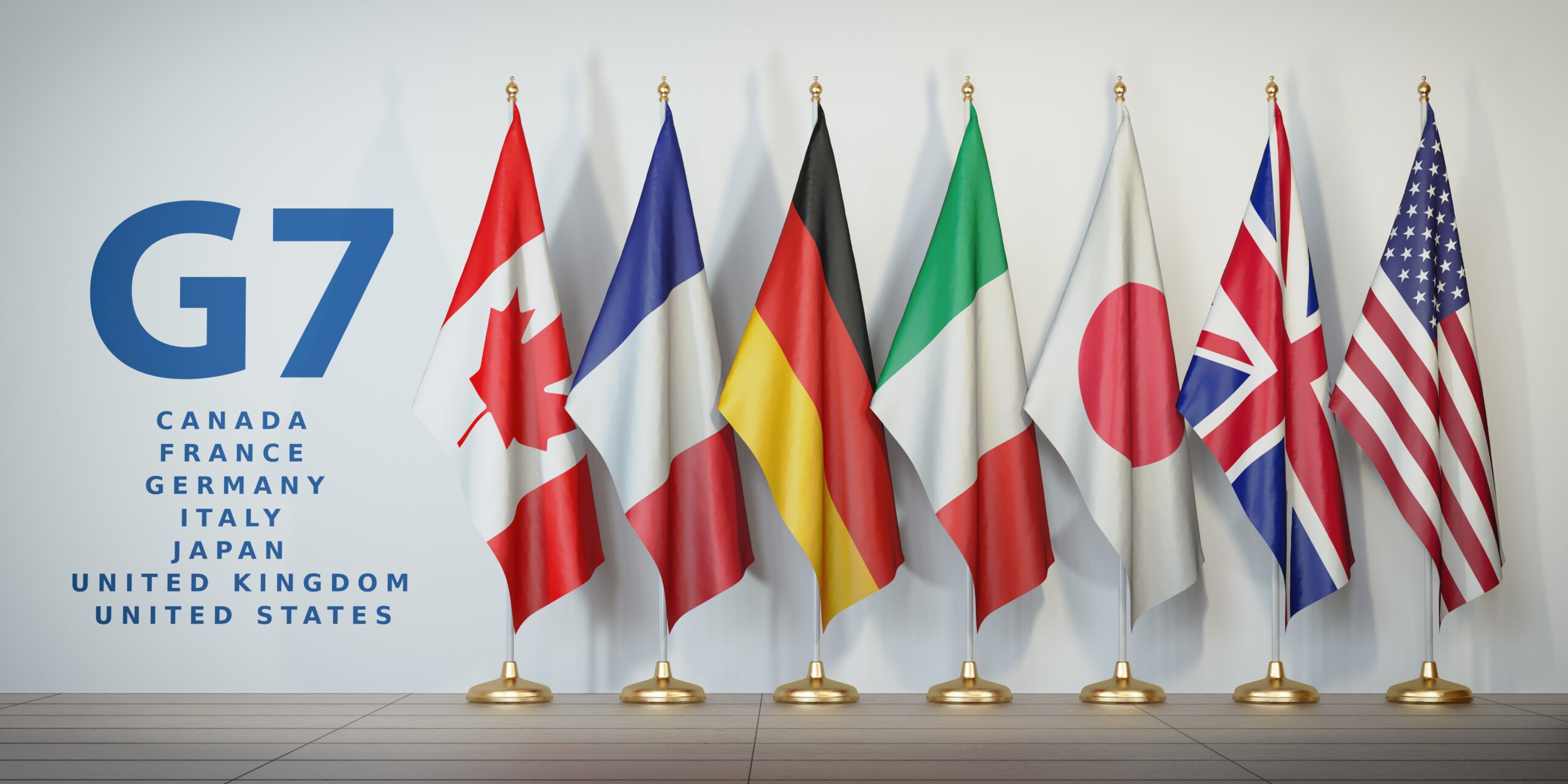G7 Leaders Seek Unity Amid Market Turmoil Sparked by U.S. Trade Moves
10.04.2025 19:00 2 min. read Alexander Stefanov
Amid growing turbulence in global markets triggered by a wave of U.S. tariffs, Canada is actively engaging with key international partners to contain the fallout.
As chair of the Group of Seven (G7) nations, Canada has launched coordinated discussions with Japan and the European Union aimed at preserving financial stability.
In a recent call, Canadian Finance Minister François-Philippe Champagne and his Japanese counterpart Katsunobu Kato shared mounting concerns over the destabilizing effects of Washington’s latest trade measures. Canada also reached out to EU Commissioner Valdis Dombrovskis to assess the wider repercussions.
The flurry of diplomatic outreach follows the Trump administration’s broad tariff rollout on April 2, which sent shockwaves through global markets. Investors, spooked by the uncertainty, began offloading even traditionally safe assets like U.S. Treasuries. Although President Trump has since introduced a temporary pause on most tariffs, he simultaneously hiked levies on Chinese imports—adding fresh pressure to an already fragile environment.
Japan has signaled its intent to work closely with the G7 and the IMF to address market instability, according to its chief currency official. Canada, meanwhile, reaffirmed its dedication to ongoing collaboration with G7 peers in navigating the turbulence.
Historically, the G7 has served as a platform for unified responses during financial crises. But this time, the disruption stems from within the group’s most powerful member, complicating the usual playbook. Italian Economy Minister Giancarlo Giorgetti said non-U.S. G7 countries have been attempting to steer Washington toward a more measured approach.
The UK confirmed its financial authorities remain in contact with global partners and expects the issue to be a key topic when G20 finance officials gather in Washington for the upcoming IMF spring meetings.
-
1
Trillions in Debt Payments Could Break U.S. Economy, Ray Dalio Predicts
06.06.2025 12:00 1 min. read -
2
Wall Street Veteran Warns Tariffs Could Disrupt AI-Driven Market Rally
05.06.2025 12:00 1 min. read -
3
Trump Defends Tariffs as Legal Battles and Global Trade Talks Escalate
03.06.2025 21:00 2 min. read -
4
JPMorgan Warns U.S. Economy May Be Slowing Behind the Headlines
09.06.2025 11:00 2 min. read -
5
Recession Odds Still High if Trump Doesn’t Reverse Course, Analyst Warns
09.06.2025 9:00 1 min. read
U.S. Recession May Already Be Locked In, Economist Warns
Renowned economist Steve Hanke believes the U.S. economy is already sliding toward a recession, driven by shrinking money supply and growing political instability.
Tom Lee Warns Fed Could Trigger Market Turmoil With Delayed Pivot
Fundstrat’s head of research, Tom Lee, has sounded the alarm over what he sees as an increasing risk of a Federal Reserve misstep.
Nassim Taleb Says Global Trust Is Shifting from the Dollar to Gold
Renowned economist and Black Swan author Nassim Taleb believes the era of the U.S. dollar as the world’s dominant reserve currency is quietly coming to an end. In a recent interview with Bloomberg, Taleb argued that the financial landscape is undergoing a subtle but profound shift—one that favors gold over fiat.
Geopolitical Shockwaves Hit Ethereum Hard While Bitcoin Stays Resilient
Crypto markets were the first to absorb the shock of escalating tensions between the U.S. and Iran, as news of targeted airstrikes on nuclear facilities sent ripples across the digital asset landscape.
-
1
Trillions in Debt Payments Could Break U.S. Economy, Ray Dalio Predicts
06.06.2025 12:00 1 min. read -
2
Wall Street Veteran Warns Tariffs Could Disrupt AI-Driven Market Rally
05.06.2025 12:00 1 min. read -
3
Trump Defends Tariffs as Legal Battles and Global Trade Talks Escalate
03.06.2025 21:00 2 min. read -
4
JPMorgan Warns U.S. Economy May Be Slowing Behind the Headlines
09.06.2025 11:00 2 min. read -
5
Recession Odds Still High if Trump Doesn’t Reverse Course, Analyst Warns
09.06.2025 9:00 1 min. read


